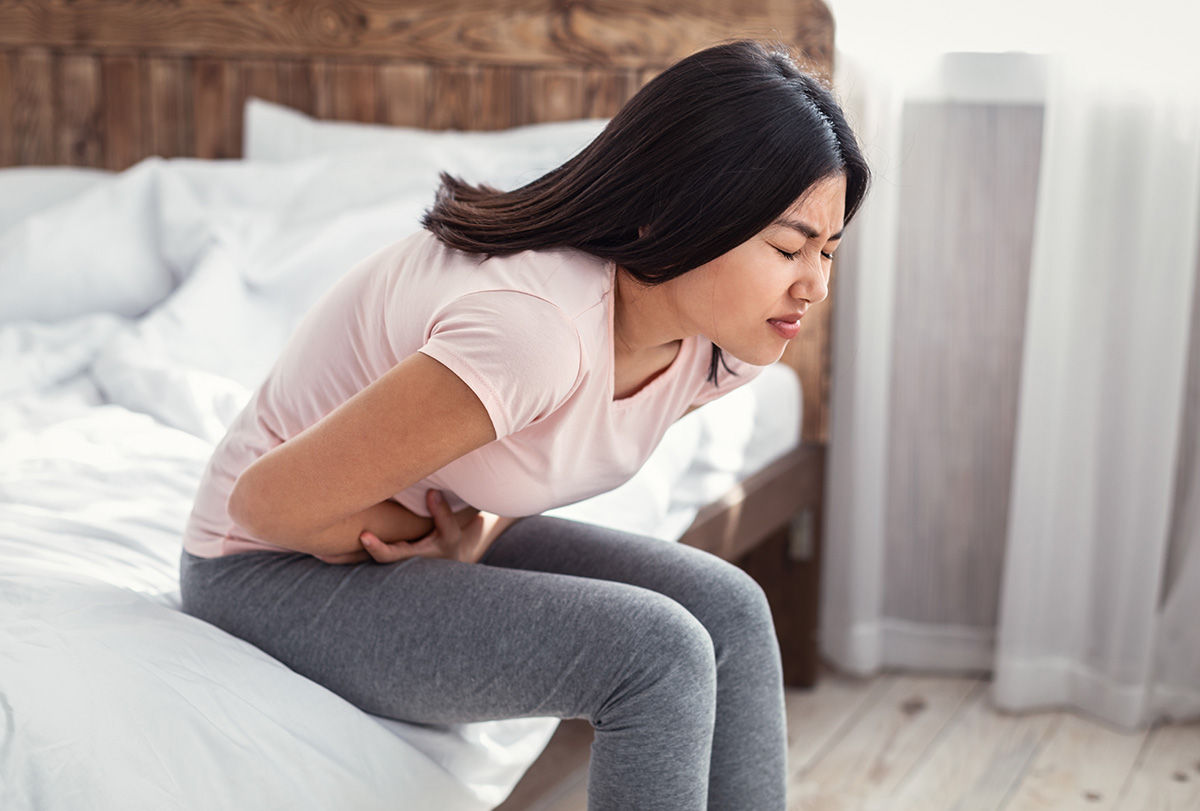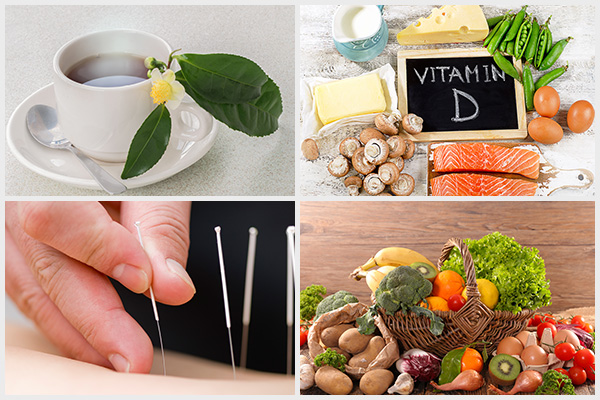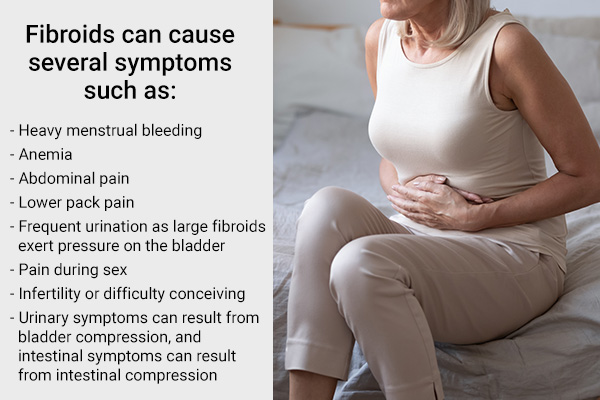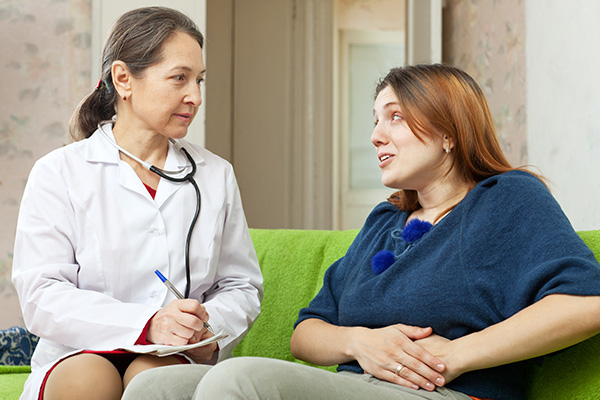In this article:
Fibroids are noncancerous tumors that can develop in the walls of the uterus. They are a common occurrence, and some reports suggest that 70%–80% of women tend to develop at least one fibroid by the time they are 50 years old.

Fibroids can range in size from small (about the size of a lemon) to large ones. They are made up of muscle cells and connective tissue.
The different types of fibroids based on their location in the uterus are:
Home Remedies to Shrink Fibroids
Here are a few effective home remedies you can try to reduce fibroid size or prevent their growth.
1. Drink green tea
Green tea (Camellia sinensis) contains many beneficial anti-inflammatory compounds, but one in particular, epigallocatechin-3-gallate (EGCG), a flavanol, is associated with a reduction in fibroid size and decreased blood loss during menstruation. (3)
How to use:
Drink a cup of green tea every morning on an empty stomach.
2. Increase your vitamin D intake
Recent studies have shown that vitamin D is a potential antitumor agent that can help prevent the growth of tumors in the body. It has also been proven to successfully reduce fibroid size in vitro. However, there are no clinical studies done on human beings to prove this.
You can add more vitamin D to your diet to help prevent the growth of fibroids. Cod liver oil, dairy, etc., are rich sources of this vitamin. Sunlight is also a major trigger of vitamin D production in the body. (4)
3. Try acupuncture
A 2016 study demonstrated the beneficial effects of fibroids in preventing the growth of fibroids and reducing the symptoms associated with them such as heavy bleeding and pelvic inflammatory disease. (3)

4. Follow a fibroid-friendly diet
Diet plays a major role in fibroid growth. Women who consume more alcohol or red meat are more likely to experience fibroid growth.
Drinking one or more beers a day can lead to a 50% increased risk of developing fibroids. Consuming little or no fresh fruits and vegetables can also increase your risk of developing fibroids.
5. Incorporate garlic in your diet
Garlic has anti-inflammatory and antioxidant properties that can be helpful in treating fibroids. The active compound allicin in it also has antitumor effects and can prevent the growth of fibroids. (5)
You can include more garlic in your diet. You can also eat a couple of raw garlic cloves on an empty stomach in the morning.
6. Drink burdock root tea
Burdock root, found abundantly in Asia, can help increase liver efficiency. Improved liver efficiency can help control estrogen levels and indirectly prevent fibroid growth. It also has anti-inflammatory properties and antitumor effects. (6)
You can boil a piece of dried burdock root in a cup of water. Strain this tea and drink it once a day.
7. Consume turmeric
Turmeric contains an active compound called curcumin, which has anti-inflammatory and antiproliferative effects that help prevent the growth of fibroids. (7) It can also provide relief from period pain.
You can add ½ a teaspoon of turmeric powder to a glass of warm water and drink it once a day.

8. Use a castor oil pack
Castor oil packs are suggested to improve the efficiency of the lymphatic and circulatory systems. They help drain toxins from the body and increase the supply of oxygenated and nutrient-rich blood to the uterus.
The castor oil pack is applied over the fibroid for 20–60 minutes per session. (8)
Why Fibroids Develop
The exact cause of fibroid growth in the uterus is not known. Fibroids have been linked to the female sex hormone estrogen. (2)
Estrogen is the primary female sex hormone that peaks around the reproductive age of a woman. The development of fibroids also tends to occur around this time in most women.
Fibroids tend to shrink when estrogen levels in the body reduce after menopause.
Signs and Symptoms of Fibroids
Fibroids can have several signs and symptoms such as:

- Heavy menstrual bleeding: Submucosal fibroids can cause heavy bleeding in some women.
- Anemia: Regular heavy periods have been linked to anemia in some women.
- Abdominal pain
- Lower back pain
- Frequent urination: Large fibroids exert pressure on the bladder.
- Pain during sex
- Infertility or difficulty conceiving
- Urinary symptoms (e.g., urinary frequency or urgency): This can result from bladder compression
- Intestinal symptoms (e.g., constipation): This can result from intestinal compression. (1)
It is important to note that many women with fibroids tend to have no symptoms at all and do not get diagnosed until they undergo an ultrasound scan.
Treatment Modalities for Fibroids
The treatment options for fibroids include: (1)
- Hormone therapies: Your doctor may ask you to take contraceptives to reduce heavy menstrual bleeding or other hormone therapies to decrease estrogen levels (GnRH analogues).
- Surgery to remove the fibroids (myomectomy) or the uterus (hysterectomy).
- Uterine fibroid embolization: It is a procedure that closes off the blood vessels that nourish the fibroids to reduce their size.
- Other procedures such as focused ultrasound surgery (FUS): This fairly new procedure uses high-intensity ultrasound waves to heat or destroy the fibroids.
- Nonsteroidal anti-inflammatory drugs (NSAIDs) to reduce period pain.
Diagnosing Fibroids
Fibroids are usually diagnosed during routine ultrasound scans at the gynecologist’s office. Some women may consult a gynecologist due to heavy periods or abdominal pain, and the ultrasound scan may detect fibroids in the uterus.
Most-Asked Questions About Fibroids
Who gets fibroids?
Fibroids are a common condition affecting many women. They are more common in women of African-Caribbean origin. According to some studies, around 70%–80% of women in the United States will develop fibroids by the time they are 50 years old.
What is the actual cause of getting fibroids?
The exact reason behind the development of fibroids is still unknown. Yet, they are said to be influenced by estrogen levels.
How can I get rid of fibroids without surgery?
Uterine fibroid embolization is a noninvasive procedure that has been found to be relatively effective in the treatment of fibroids.
Is surgery ever required?

Yes, surgery is usually reserved for women with any of the following:
- Rapidly enlarging pelvic mass
- Recurrent uterine bleeding
- Persistent or intolerable pain or pressure
- Infertility (if pregnancy is desired)
- Recurrent spontaneous abortions (if pregnancy is desired)
Does abdominal massage help fibroids?
Mayan abdominal massages are said to help with fibroid reduction in some patients, but research evidence is lacking.
Final Word
Fibroid growth is heavily influenced by estrogen levels in the body. Hence, it is important to regulate fibroid growth by maintaining a healthy estrogen and progesterone balance.
You can try the home remedies given above while consulting your doctor for a proper treatment plan for your condition.
- Was this article helpful?
- YES, THANKS!NOT REALLY


